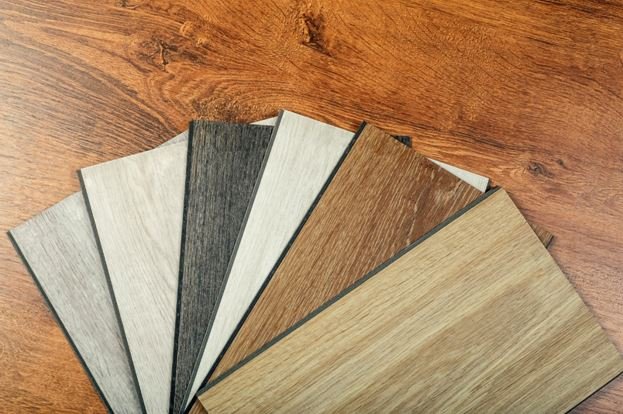You might be thinking about vinyl flooring and whether this is the best type for your home. When shopping for this material, know that you have two options: the floating and the glue-down types. Both have various designs and styles that will be great for your home décor, but which one is right for you?
The glue down type is designed to be easy to install and can be done so even by those with little experience. You can read more about the vinyl floors on this site here. Glue down vinyl plank flooring takes this a step further since you can set this up easily, thanks to the fact that, as the name suggests, it is glued down to the subfloor. This means that no nails or screws are required, which can make the installation process much quicker and simpler.
They can set hard on the adhesive at the subfloor level, where the planks will adhere to them firmly. This leaves the floor more stable and able to handle heavier furniture without breaking or denting. The benefits can be the following:
Advantages of Glue Down Types
More Durable – The adhesive used for the installation is very sticky and strong. In fact, the planks can even retain their appearance for years without any peeling, which is an excellent return on investment. However, know that the durability will depend on the installation of the floor, so it’s best to do this right the first time.
Easier Maintenance and Repairs – These floors are easier to repair than the floating types. You could also easily replace the vinyl plank flooring glue down whenever needed. If a single tile becomes faulty, you can replace it without needing to remove its neighbors.
Disadvantages
If you’re considering installing vinyl plank flooring in your home, you may wonder if a glue-down installation is right for you. While this type of installation has some advantages, there are also a few potential disadvantages to keep in mind.
One of the biggest disadvantages is the mess and hassle that comes with the installation process. Unlike a floating floor, which simply clicks together, a glue-down installation requires you to spread adhesive over the subfloor and then carefully lay each plank in place. This can be time-consuming and messy, and if you’re not careful, it’s easy to make mistakes that will show after the installation is done.
About the Floating Types
The floating floors have been very popular in various commercial buildings for the last decade, and it’s continued to do so. It comes with two options: the click vinyl flooring and the loose lay. Here are some things to know about each of them.
Loose Lay
The loose lay is installed above a subfloor without needing fasteners and adhesives. Various manufacturers have instructions about these, but usually, they can be installed by gluing down the tiles to a room’s outer edges to support everything in the middle. The set-up is helped by the perimeter planks that were glued down, and the rest tend to stay intact.
Click Vinyl Flooring
The click types are very popular because they suppress sounds and are stable. They can also be known as luxury vinyl floors, with lock mechanisms and rigid cores that help the planks lock easily into place.
Advantages
Easy to Install – Both types are easy to install and are not messy. Since the planks will sit on the subfloor, they will remain stable and continue to look good even if the room is not perfectly leveled. See more about the installation process on this page: https://www.wikihow.com/Install-Vinyl-Flooring.
Very Durable – These floating flooring can come in various thicknesses, including 6mm ones. They tend to be very durable, and they have noise reduction features. Unlike the glue-down types that tend to peel. These floors are waterproof and don’t come apart, especially if the installation is done right.
Disadvantages
Difficult to Repair – Since there are interlocking features, it will be difficult to repair if one plank begins to have issues. You need to remove the surrounding flooring and take everything apart before repairs can be made.
Costs – This is one of the most expensive options that you might come across. However, many argue that this is still worth the investment.
You might consider hiring professionals to install both floors, especially if you have a large room. These floors will require a chunk of your time, and the adhesives can be challenging to deal with, especially if you don’t have prior experience installing these kinds of flooring.
A Final Word
If you’re considering new flooring for your home, don’t overlook the benefits of glue down vinyl plank flooring and the floating types. These floorings are durable, easy to install, and maintain, making them a great choice for busy households or commercial spaces. Compare the pros and cons and see which will best suit your needs.
















